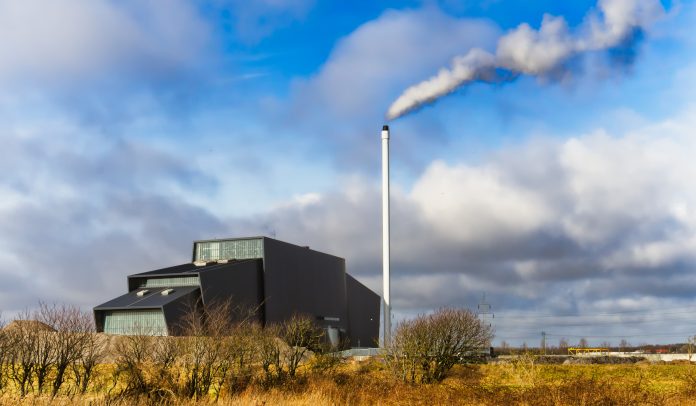Open Access Government provides an update on Europe’s circular bioeconomy, which brings together various actors from bio-based industries, ranging from farmers to scientists, to solve technological, regulatory and market challenges
The Circular Bio-based Europe Joint Undertaking (CBEJU) is a €2bn partnership between the European Union and the Bio-based Industries Consortium (BIC) that funds projects advancing competitive circular bio-based industries and the circular bioeconomy in Europe.
CBE JU is operating under the rules of Horizon Europe, the EU’s research and innovation programme for 2021-2031. The partnership is building on the success of its predecessor, the Bio-based Industries Joint Undertaking (BBI JU).
The main goals of the partnership are to:
• Accelerate the innovation process and development of bio-based innovative solutions.
• Accelerate market deployment of the existing mature and innovative bio-based solutions.
• Ensure a high level of the environmental performance of bio-based industrial systems.
Unlocking the future of circular bioeconomy in Europe
Shifting from non-renewable fossil raw materials and minerals to circular bio-based production processes is essential to reach the EU’s climate targets as set out in the European Green Deal. Strong, resource-efficient and competitive bio-based industries are important drivers of this change. By producing renewable bio-based products and materials from waste and biomass in an innovative, sustainable and circular way, they can contribute significantly to the climate neutrality target by 2050, while creating green jobs and sustainable economic growth in regions across Europe.
CBE JU is building on BBI JU’s success while enlarging its scope and addressing the remaining challenges of Europe’s bio-based industries. The partnership is focusing on:
• Supporting research and innovation for sustainable bio-based solutions.
• De-risking investments in innovative, circular bio-based production plants.
• Addressing the technological, regulatory and market challenges of the bioeconomy.
• Placing sustainability at the heart of its operations.
• Strengthening the collaboration of all bioeconomy actors.
• Engaging with more stakeholders along the value chains.
The CBE JU organises yearly open calls for proposals to fund projects in research, demonstration and industrial deployment. These projects stimulate collaboration among varied actors across Europe and along the value chains, from biomass producers and waste managers to researchers and processing industries.
In June, CBE JU published its first call for project proposals. A total of €120m has been dedicated to advancing competitive circular bio-based industries in Europe across 12 topics.
12 funding topics to support three CBE JU objectives
The call’s funding supports three CBE JU objectives defined in the CBE JU’s Strategic Innovation & Research Agenda:
1. Accelerate the innovation process and development of bio-based innovative solutions.
2. Accelerate market deployment of existing mature and innovative bio-based solutions.
3. Ensure a high level of the environmental performance of bio-based industrial systems.
Project applicants will support the implementation of these objectives via 12 topics with a total indicative budget of €120m:
• HORIZON-JU-CBE-2022-IA-01: Biogenic carbon capture and use (CCU) for circular bio-based products – €10m.
• HORIZON-JU-CBE-2022-IA-02: Cooperative business models for sustainable mobilisation and valorisation of agricultural residues, by-products and waste in rural areas – €10m.
• HORIZON-JU-CBE-2022-IA-03: Cost-effective production routes towards bio-based alternatives to fossil-based chemical building blocks – €12m.
• HORIZON-JU-CBE-2022-IA-04: Co-processing of mixed bio-based waste streams – €12m.
• HORIZON-JU-CBE-2022-IAFlag-01: Maximum valorisation of sustainably sourced bio-based feedstock in multi- product, zero-waste, zero-pollution biorefinery – €14m.
• HORIZON-JU-CBE-2022-IAFlag-02: Alternative sources for high-added value food and/or feed ingredients – €14m.
• HORIZON-JU-CBE-2022-R-01: High performance bio- based polymers for market applications with stringent requirements – €9m.
• HORIZON-JU-CBE-2022-R-02: Bio-based coatings, barriers, binders and adhesives – €9m.
• HORIZON-JU-CBE-2022-R-03: Circular-by-design bio-based materials to improve the circularity of complex structures – €9m.
• HORIZON-JU-CBE-2022-R-04: Proteins from alternative and unconventional sources – €9m.
• HORIZON-JU-CBE-2022-R-05: Sustainable fibres biorefineries feedstock – €9m.
• HORIZON-JU-CBE-2022-S-01: Developing and validating monitoring systems of environmental sustainability and circularity: a collection of best practices and benchmarks – €3m.
The CBE JU is funding three types of actions
• Research & Innovation Actions (RIAs) will establish new knowledge or explore the feasibility of new or improved technology, product, process, service or solution.
• Innovation Actions (IAs) will scale up activities from prototype to product validation and market replication. Among them, Flagships will deploy the first-of-its-kind industrial and commercial scale production plant in the European market.
• Coordination & Support Actions (CSAs) will structure stakeholder communities, support technological visions and outreach and disseminate and exploit research results, among other objectives.
All stakeholders of the bio-based industries ecosystem – including farmers, brand owners, companies, research organisations and local authorities – were invited to apply for CBE JU funding.











